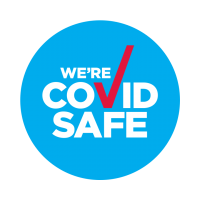The Importance of Iron
What is iron?
Iron is an essential mineral and an important component of proteins, involved in oxygen transportation and metabolism. Almost two thirds of the iron in your body is found in hemoglobin, the protein in red blood cells which carry oxygen.
What foods provide iron?
Iron can be found in foods such as meat, seafood and poultry. It is also found in cereals, vegetables, legumes and lentils.
How much iron do you need?
The recommended dietary intake is different for all age groups. Assuming a healthy person, you need to consume the following amounts every day:
| AGE | MALES | FEMALES |
|---|---|---|
| 14-18 yrs | 11mg | 15mg |
| 19-50 yrs | 8mg | 18mg |
| 51 yrs+ | 8mg | 8mg |
| Pregnant Women | N/A | 27mg |
What happens if you don’t have enough iron?
An iron deficiency may result from a low dietary intake of iron. This occurs when the blood storage levels of iron are low, and the blood haemoglobin levels fall below normal. Women of child bearing age, pregnant women, older infants and toddlers, as well as teenage girls are at a higher risk of developing an iron deficiency.
Signs of iron deficiency
Feeling tired and weak, decreased work and school performance, slow cognitive and social development during childhood, difficulty maintaining body temperature, and decreased immune function are all signs of possible iron deficiency.
WIN A MASSAGE
Answer 5 true or false questions and place your completed quiz in our feedback box by 26 November for your chance to win.











